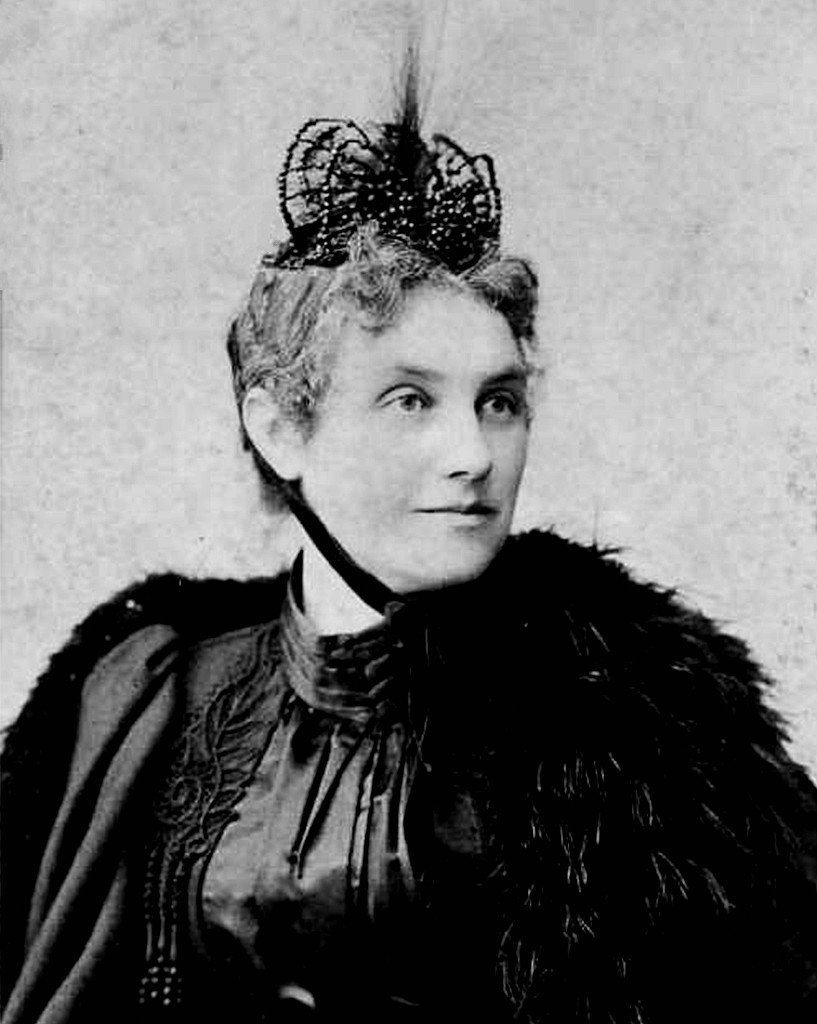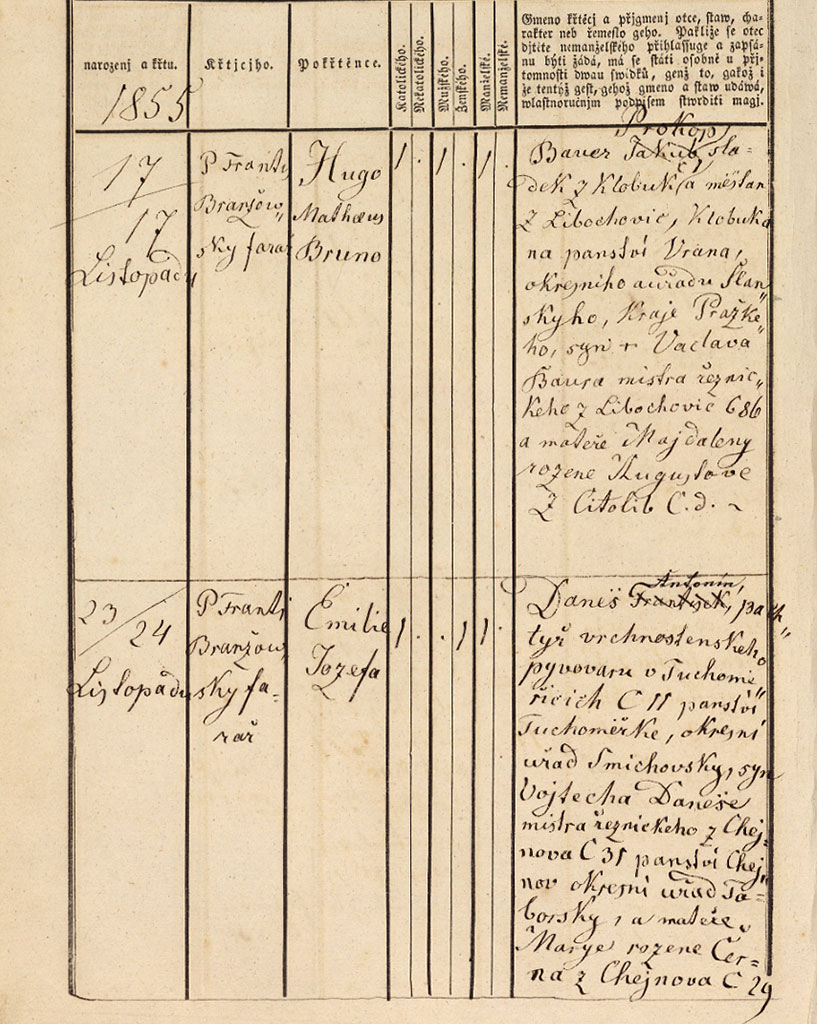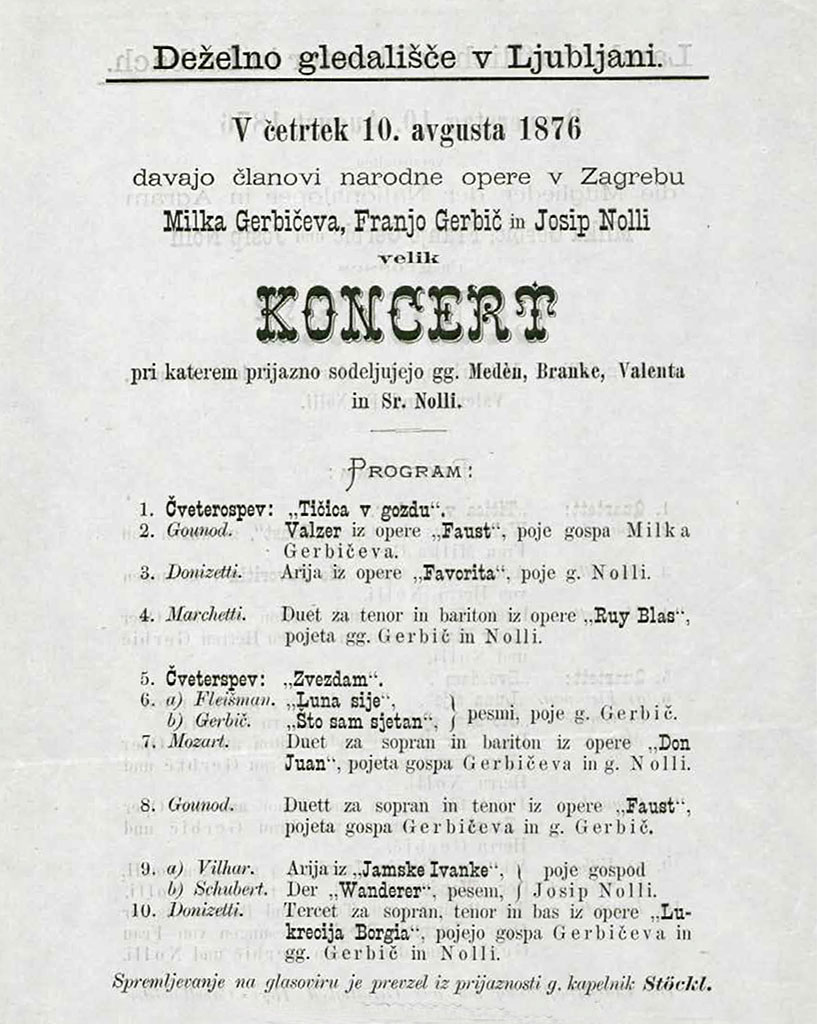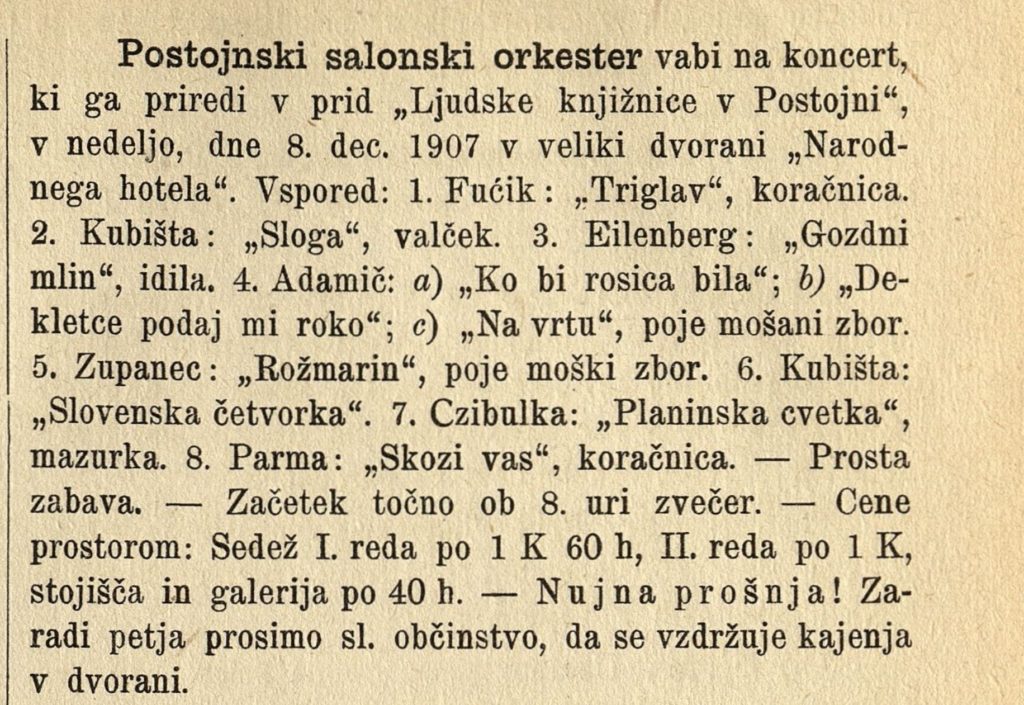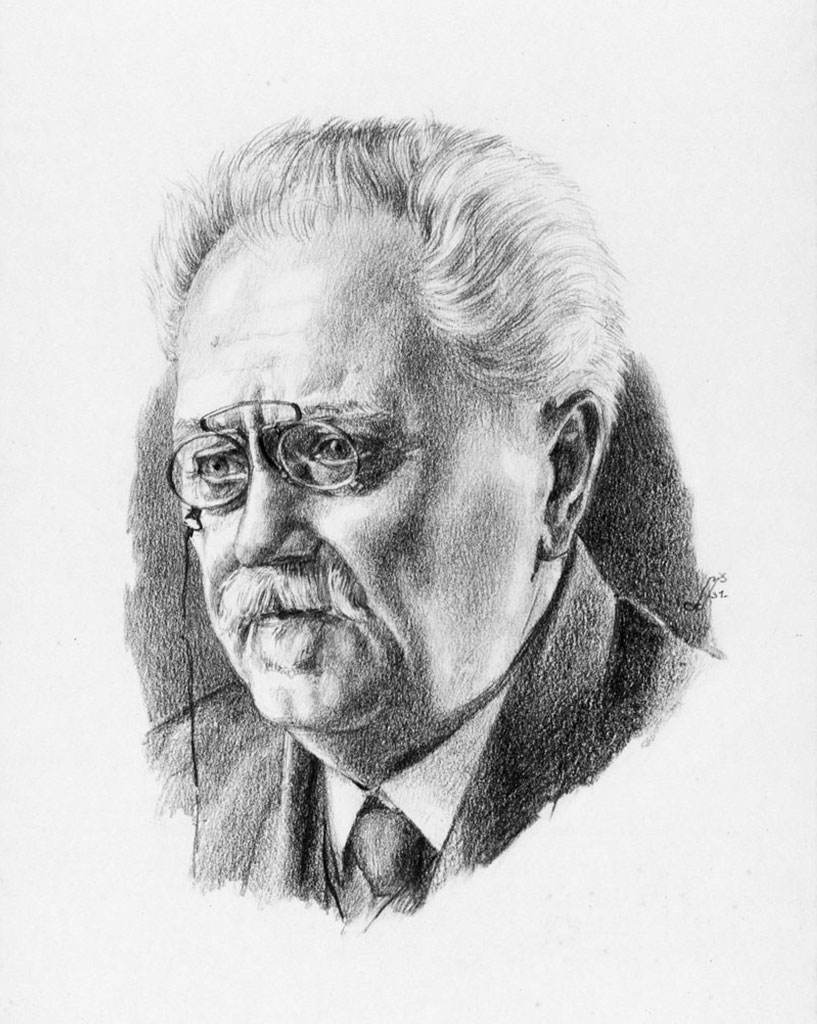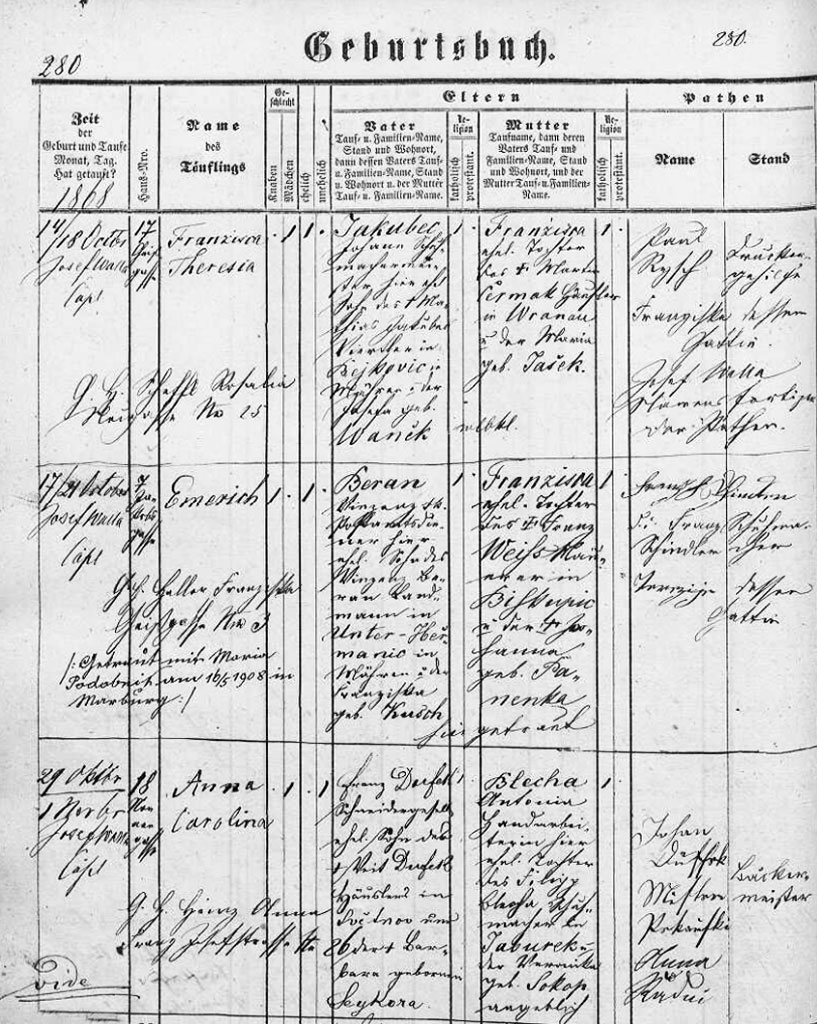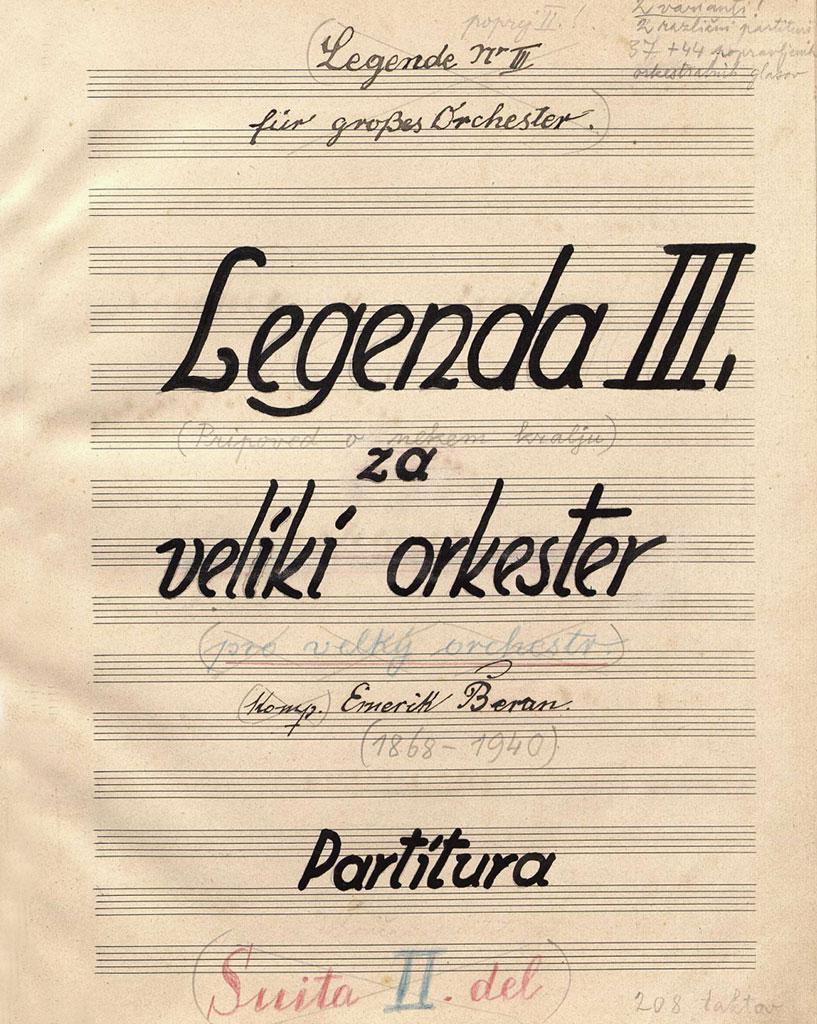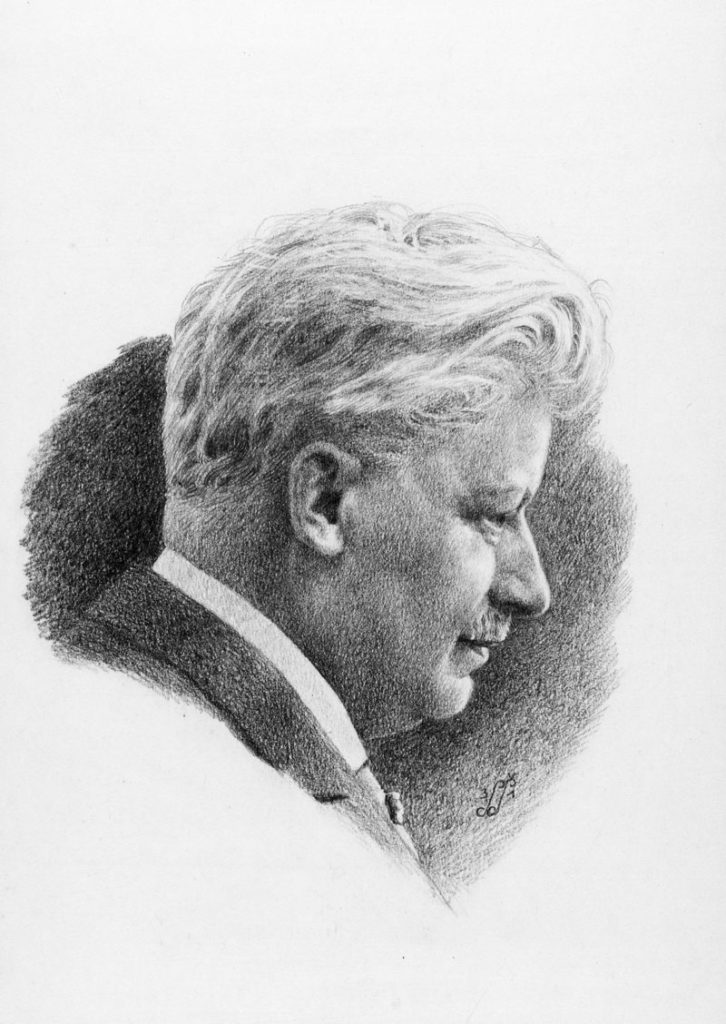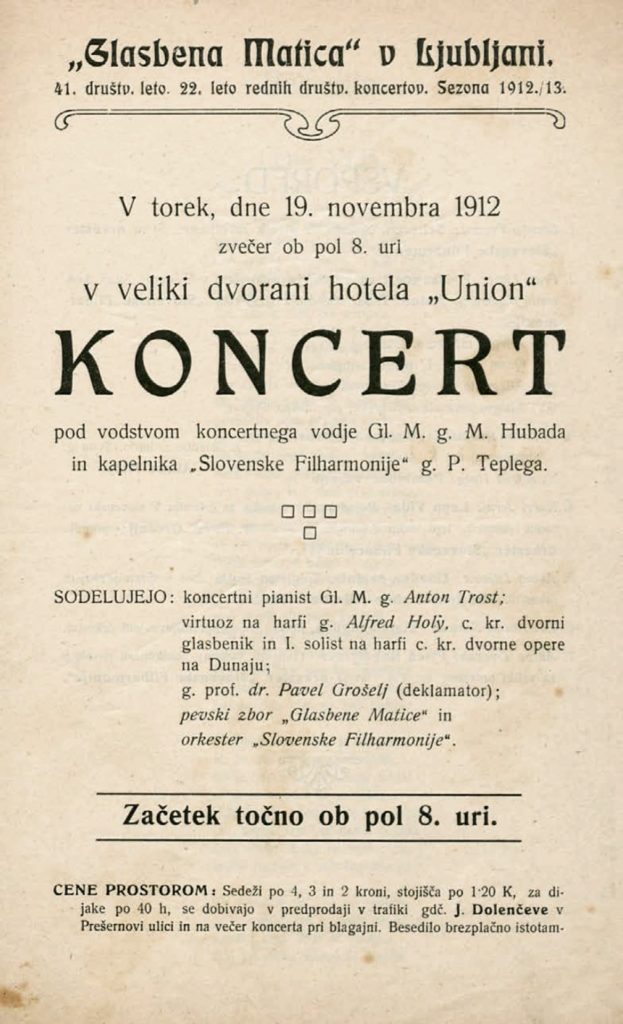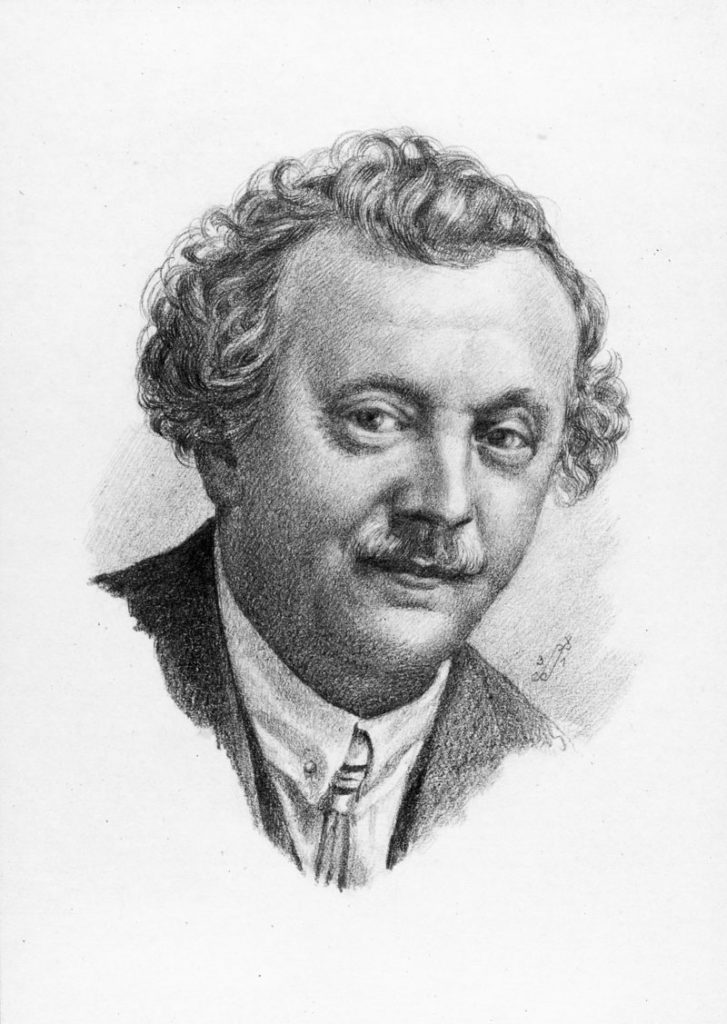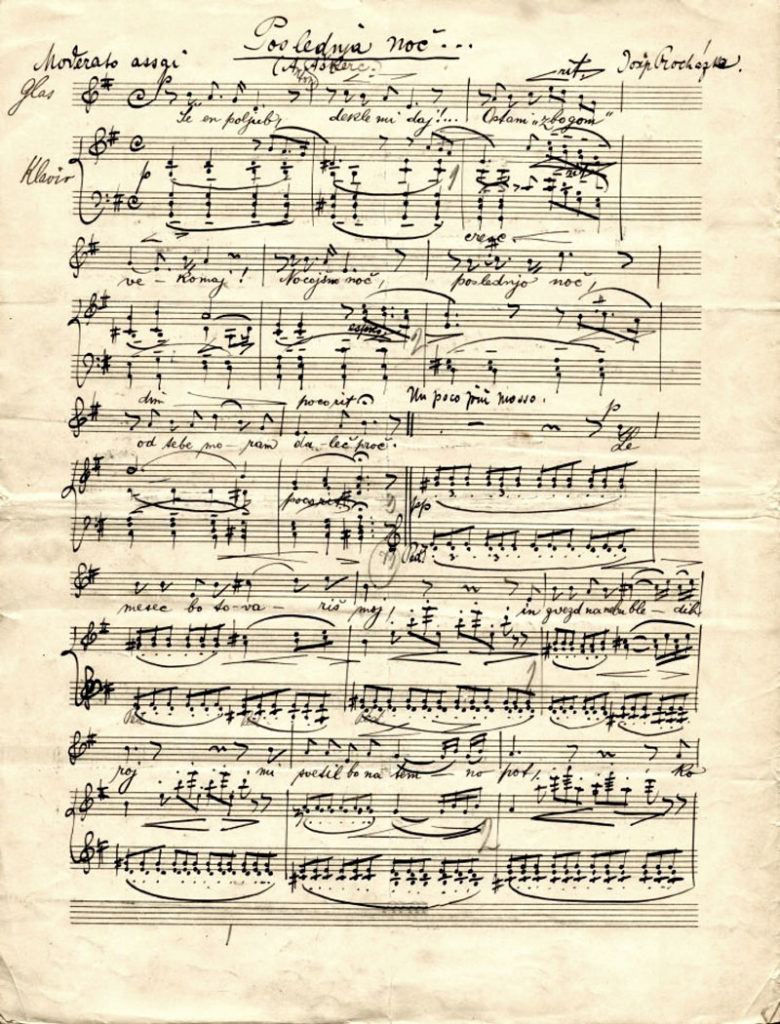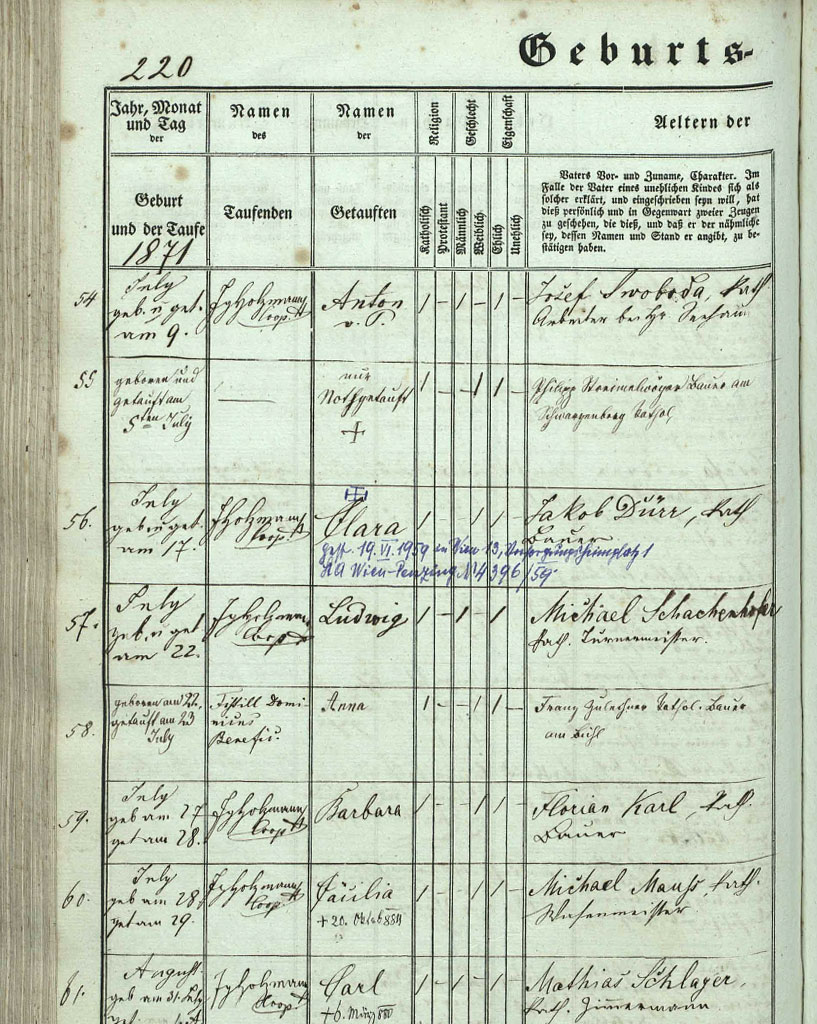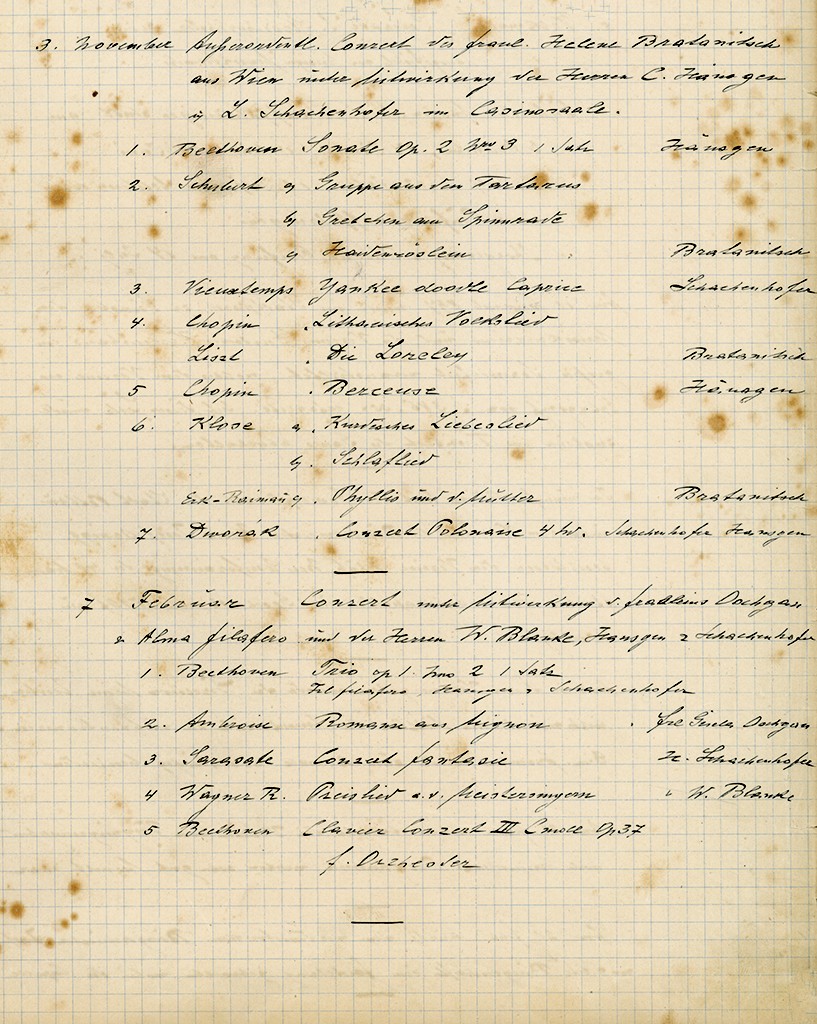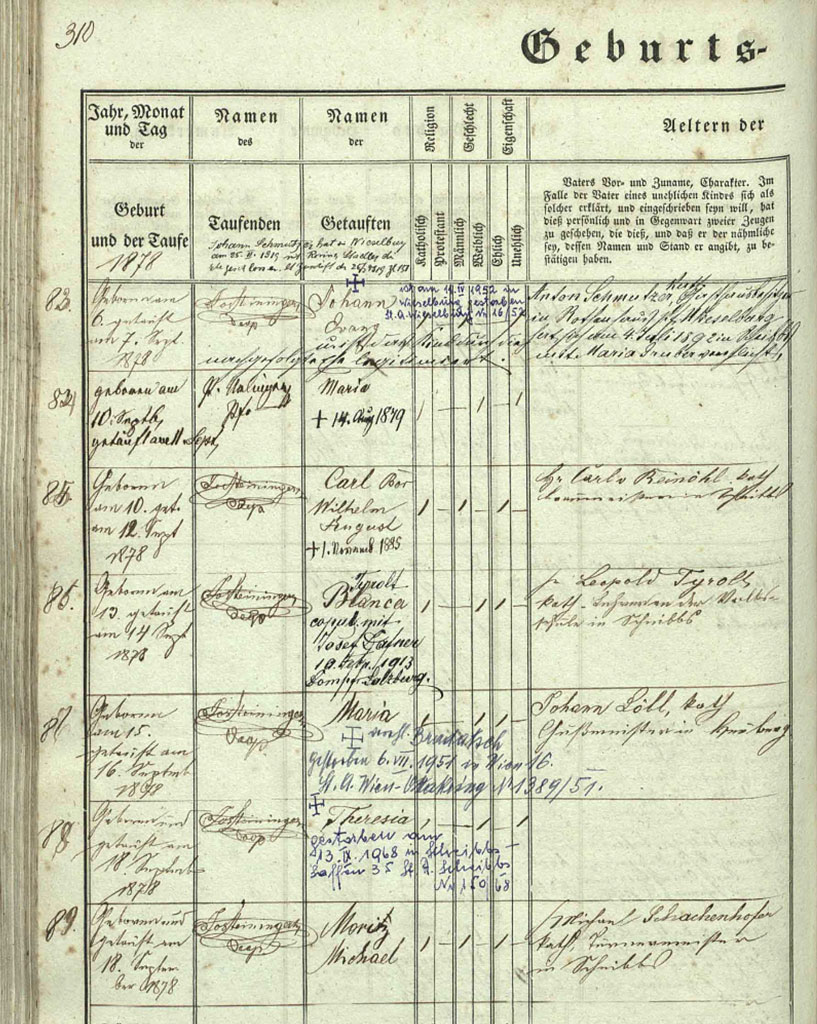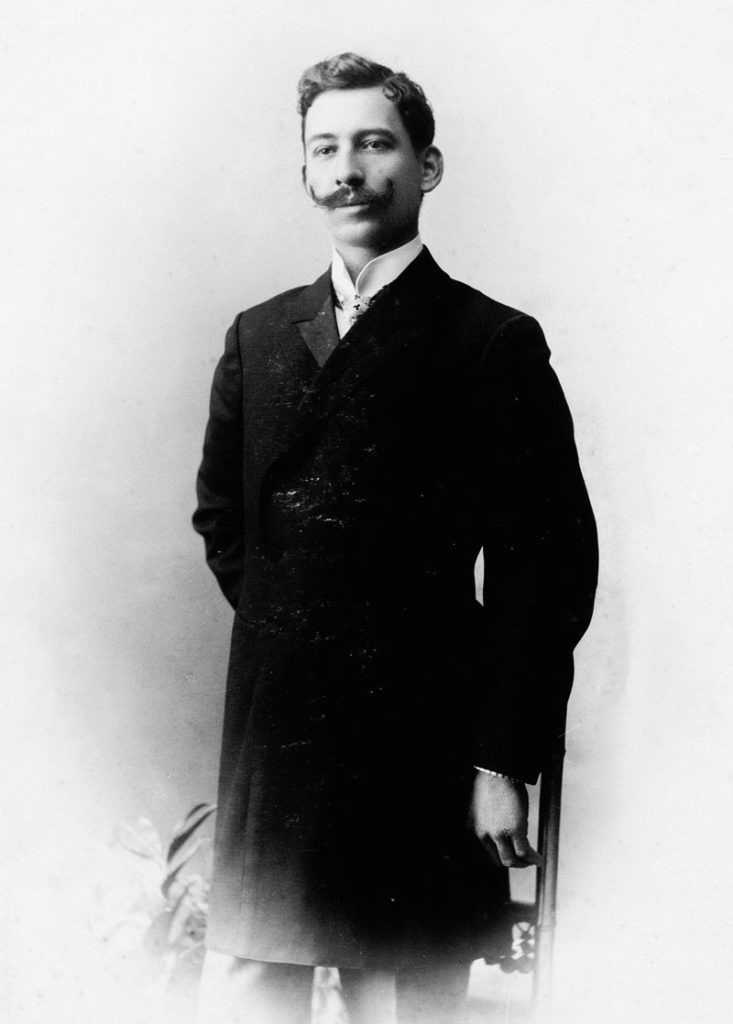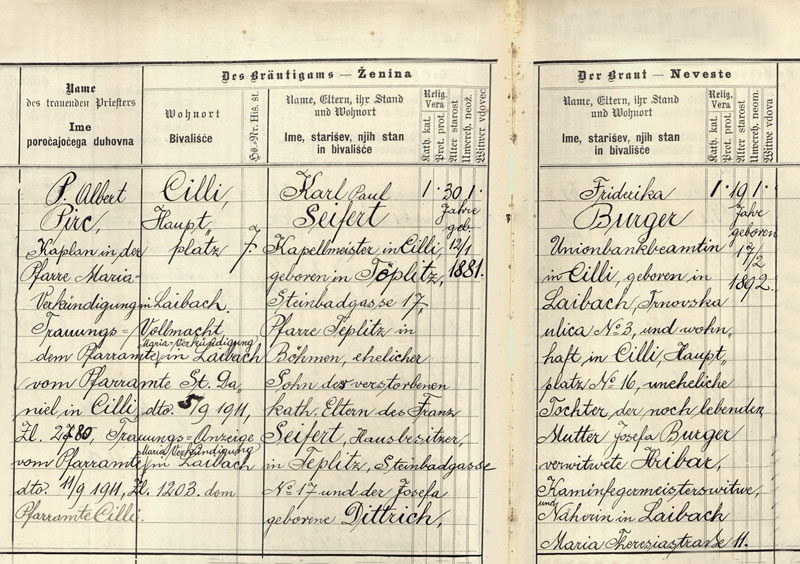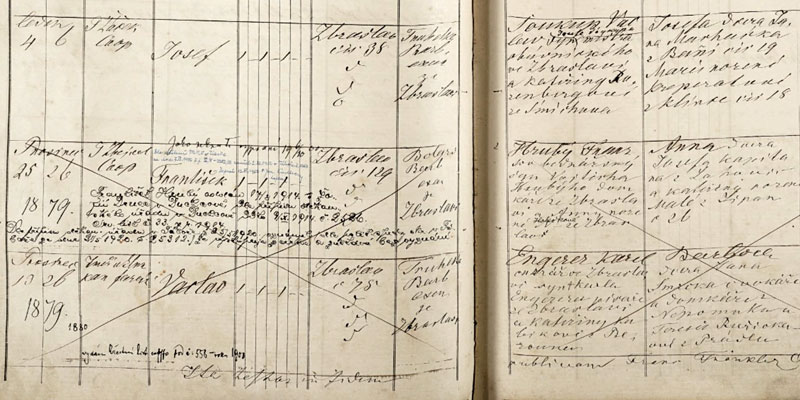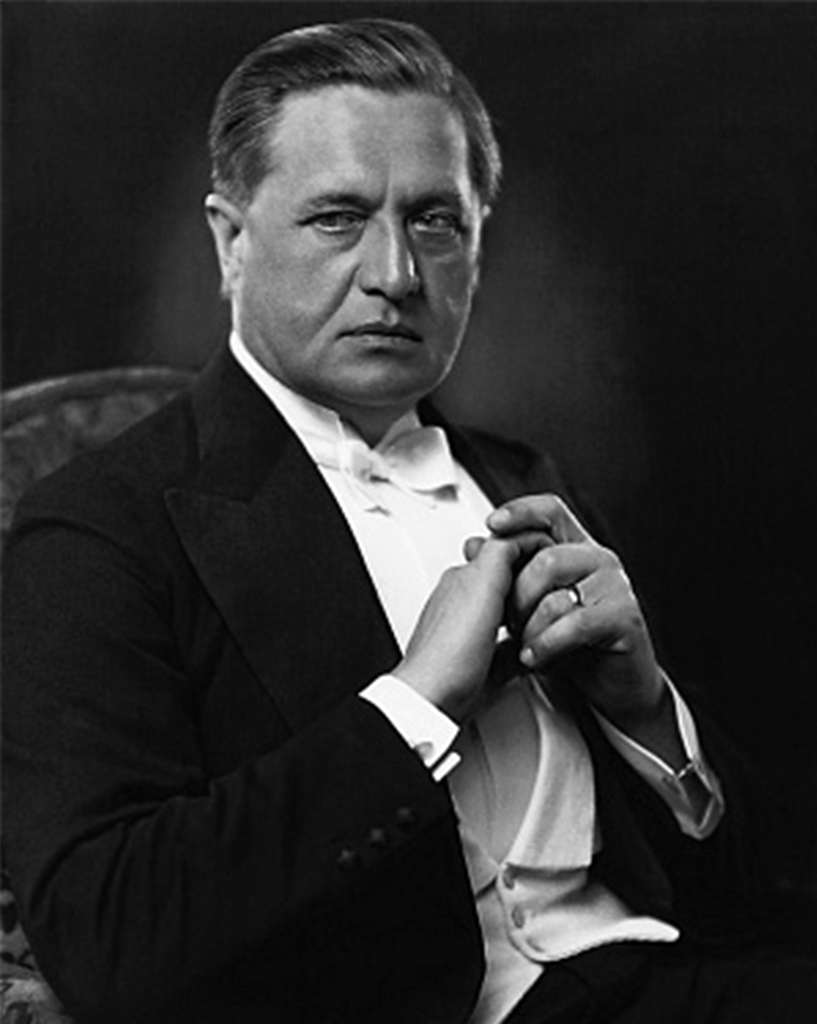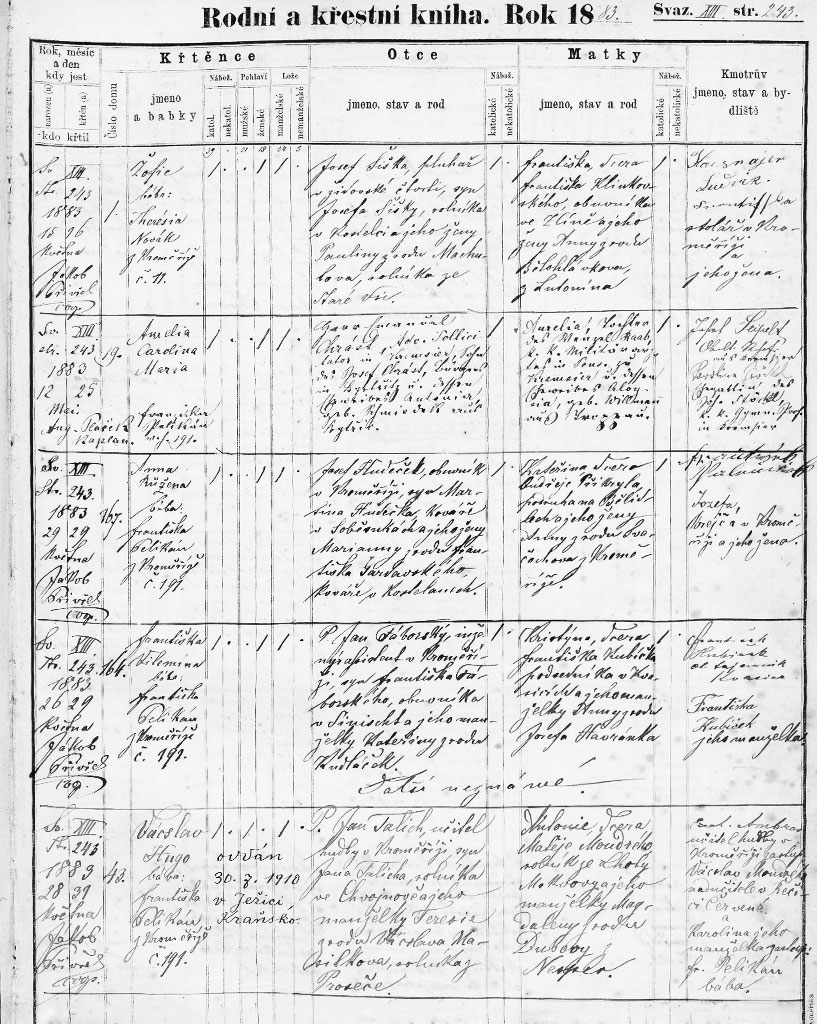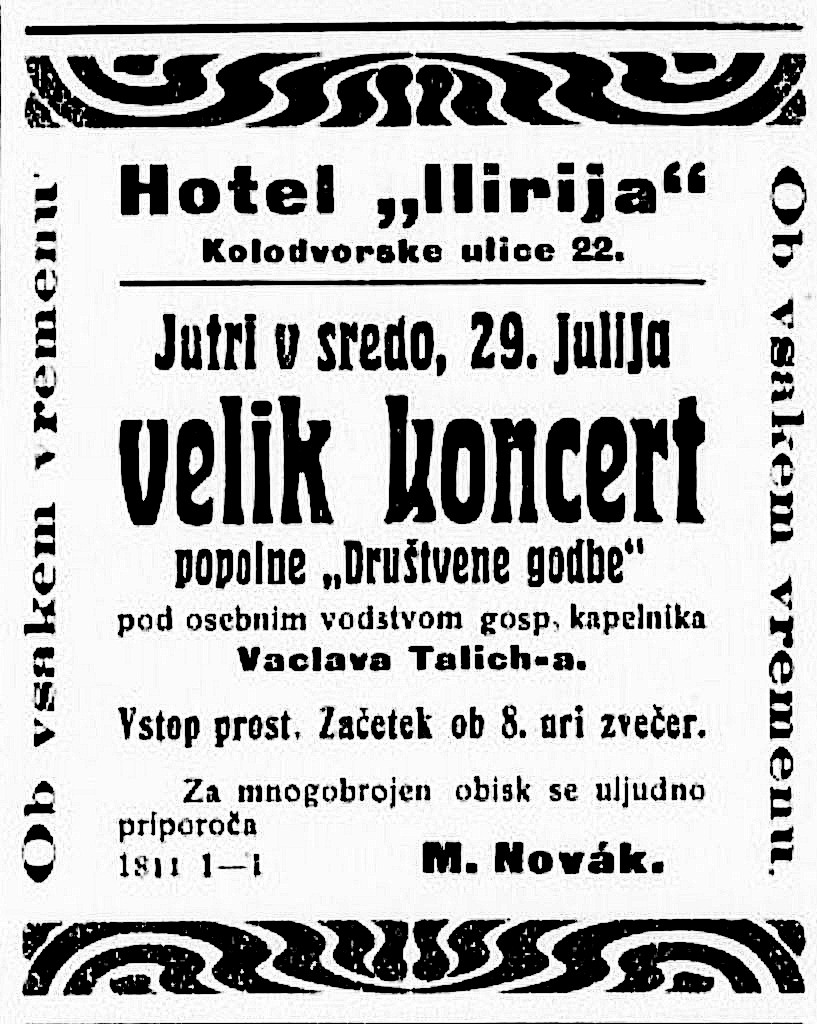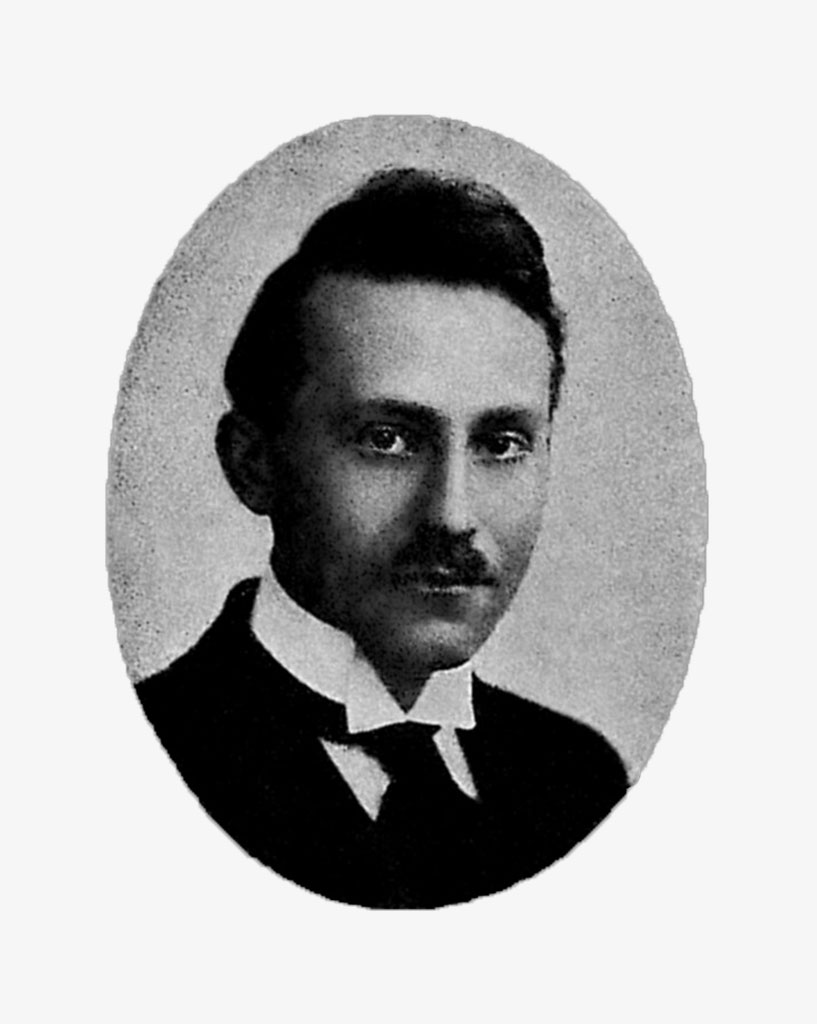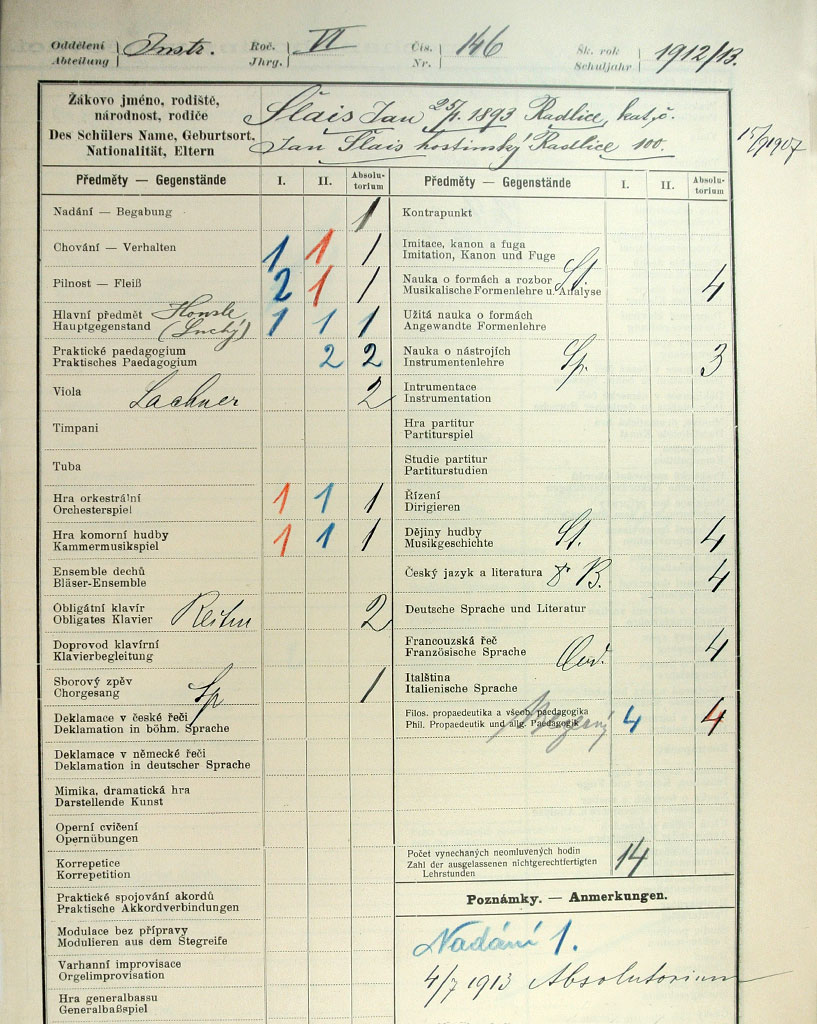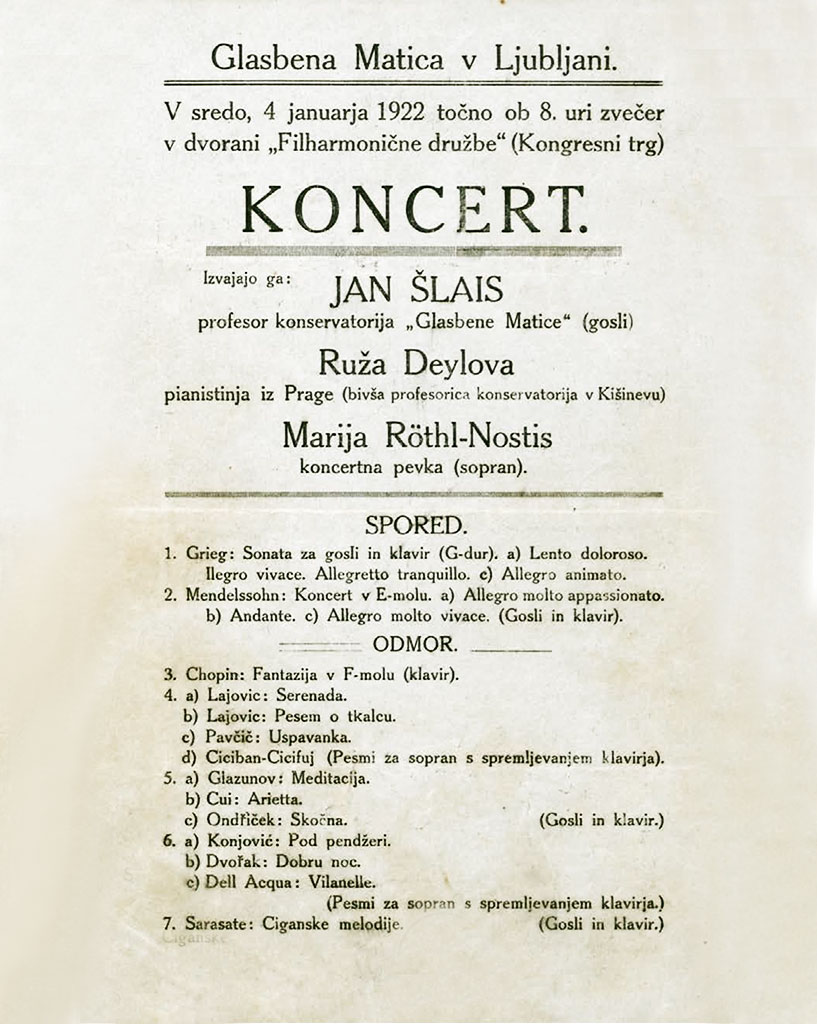VIRTUAL EXHIBITION
Join us on a journey of discovery, explore the musical heritage and experience the interconnected cultural roots of Europe.
Portraits
VI. THE IMMIGRANT MUSICIANS
During this golden period of music and migration, the paths of many musicians crossed in the Slovenian lands. They brought their musical knowledge and experience, music scores, the latest trends in performance styles and personal relationships with renowned musicians and patrons to our land, thus writing an important part of Slovenian music history and bringing forth a new generation of artists. Sometimes matters of the heart and resulting marriages convinced musicians to start a new chapter in their lives and settle in the often musically still quite dormant Slovenian lands.
Singer
MILKA GERBIČ
Milka Gerbič (née Daneš; 1855–1933) was born in Tuchoměřice, Bohemia. She attended a girls’ college in Prague and in 1871 took up singing at the František Pivoda’s famous Czech singing school. In 1875 she made her debut at the Croatian National Theater Opera in Zagreb, where she remained for three and a half years. There she met the tenor Fran Gerbič (1840–1917), marrying him in 1876 in Děpoltovice near Karlovy Vary. Due to health problems, the couple left Zagreb in 1878 and moved to Cerknica for two years and then to Ulm, Germany, where they worked at the local opera. Despite their stay abroad, they regularly participated in the recitals (bésede) of the National Reading Society of Ljubljana and the German Provincial Theater in Ljubljana. They moved to Lviv, where they worked at the Lviv Opera and also regularly toured various European cities. In 1886 they moved to Ljubljana, where they began to plough the field in the theatrical domain and, with exceptional self-sacrifice by today’s standards, profoundly affected the development of Slovenian musical culture. From 1886 to 1893, Milka and Fran Gerbič and Milka’s sister Luiza Daneš (1863–1918, married name Trstenjak) were the central and driving force for laying the foundations of Slovenian theatrical art. More precisely, Gerbič was an official theatre superintendent who cautiously started staging operas and operettas, whereas his wife Milka became an operatic prima donna, and his sister-in-law Luiza, a young singer and actress. With his arrival, the planned overhaul of the program and the gradual creation of the Slovenian Regional Theatre began. Moreover, this was the right time for the professionalization of Slovenian Opera. Milka was an active member of the National Reading Society (Narodna čitalnica) of Ljubljana and a renowned operatic soloist, very popular with audiences. After the Croatian Dragojila Odijeva, it is clear that Milka Gerbič was the second prima donna of Slovenian opera in Ljubljana, one with a more significant and weightier repertoire. Discover more
Violinist, Kapellmeister and Composer
LOVRENC KUBIŠTA
Lovrenc Kubišta (1863–1931) was born to Czech parents near Bratislava. After studying at the Paulis Military Music School in Prague, where he was a violin student of Antonín Bennewitz, he worked as a composer, violinist, assistant to the music director of the military band, and as a member of the Kolo Choral Society in Zagreb. In 1900 he moved to Postojna, where he directed an orchestra, a brass band and two choirs, and taught piano, violin and all string and wind instruments. In 1909 he moved to Gorizia, where he was a teacher at the music society and directed several bands in the area. In 1915 he fled from Gorizia to Celje to work first in the German music society (Cillier Musikverein) and then until 1922/23 in the Slovenian Music Society (Glasbena matica). There he was also bandmaster and wrote numerous arrangements of folk songs until his death in 1933.
Cellist and Composer
EMERICH BERAN
Emerich Beran (1868–1940) was born in Brno, Moravia. He received his first education in Olomouc, where he studied piano, violin, and cello privately. He continued playing the cello at the Brno Music Society School (1884–85) and in 1885 began studies at the Brno Organ School, where he took composition and instrumentation lessons with Leoš Janáček. He graduated with honors in 1888 and passed the state examination in Vienna in 1892. From 1889 to 1890 he was a cellist in the opera orchestra of the Brno City Theater. From 1890 to 1898 he taught music at the Czech Men’s College of Education in Brno and was a teaching assistant at the Brno Organ School. In Brno he wrote most of his compositions. For financial reasons, he moved to Maribor in 1898, where he worked as a music teacher at the State Teacher Training College for Men (1898–1928), as choirmaster of the choir of the National Slavic Reading Society (1898–1906), and as a cello teacher at the Music Society music school (1919–25). From 1928 to 1936 he was honorary professor of cello at the Ljubljana Conservatory, where he trained several Slovenian cellists. Beran maintained close and friendly contact with Leoš Janáček through personal correspondence (1890–1928). He published his works in the journal Novi akordi (New Chords). He wrote opera, orchestral works, chamber music works (piano and organ), choral works, and solo songs.
Pianist and Composer
KAREL HOFFMEISTER
Karel Hoffmeister (1868–1952) was born in Liblice, Bohemia. After completing secondary school he studied philosophy, art history, and esthetics at the Czech University of Prague and music at the German University of Prague. At the same time, he studied piano with the virtuoso and composer Henrik von Kàan, composition and organ at the Prague Organ School with professors Karl Stecker, Josef Klička, and Karl Knittel. In 1891 he moved to Ljubljana, where he taught piano and gave concerts at the Music Society school. In the autumn of 1898 he was appointed professor of piano at the Prague Conservatory, where he later also taught theory, harmony, and music history. He was a member of the Czech Piano Trio. In Ljubljana he wrote piano works and vocal works on texts by Simon Jenk, Vida Jeraj, and Josip Freuensfeld.
Violinist and Kapellmeister
PETR TEPLÝ
Petr Teplý (1871–1964; Pietro Caldo) was born in Prague. He studied violin with Antonín Bennewitz at the Prague Conservatory between 1882 and 1888. After his studies he was a music teacher in Kroměříž and Přerov, military bandmaster in several towns. Between 1896 and 1899 he was a violinist at the German Theater in Prague. As a retired military bandmaster, he was active in Trieste between 1902 and 1912 and taught at the Slovenian Music Society between 1913 and 1914. In Trieste he was also a promoter of Ševčík’s violin method. In the 1914/15 season he was conductor of the Slovenian Philharmonic Orchestra in Ljubljana. After his return to Prague, he was military bandmaster and violinist in the German theater orchestra until the end of the First World War, then in Vysoké Mýto and director of the Military Music School in Prague.
Violinist and Composer
JOSEF VEDRAL
Josef Vedral (Josip Vedral; 1872–1929) was born in Stavropol, Russia, to Czech parents. He completed six grades of primary school. In 1885 he entered the Prague Conservatory in the class of Antonín Bennewitz. He then served for three years in the military band of the 74th Infantry Regiment and in the Kovařovic Symphony Orchestra in Prague. In 1895 he succeeded violin teacher Karel Jeraj at the Ljubljana Music School and began teaching violin and piano. He taught violin and music theory at the Music Society School for thirty-four years and directed the choir and orchestra. From 1912 he taught music at the Organ School in Ljubljana and singing at the First State Secondary School. He was also an active concert performer, especially at the beginning of his teaching career. His students included Ivan Trost, Anton Bajda, Vinko Šušteršič, Albin Fakin and many others. He was also active as a composer, his oeuvre consisting mainly of violin works.
Pianist and Composer
JOSEF PROCHÁZKA
Josef Procházka (1873–1956) was born in Slaný, Bohemia. He studied piano at the Prague Conservatory with Josef Jiránek and composition with Antonin Dvořák. On the recommendation of the board of the Music Society, he began teaching in 1898, where he taught piano and composition for more than a decade, eventually being appointed to the Prague Conservatory. With a series of piano compositions and songs published in the journals Glasbena zora (Musical Dawn) and Novi akordi (New Chords) between 1899 and 1908, he elevated Slovenian chamber music to a previously unknown level.
Violinists and Composers
LUDWIG AND MORITZ SCHACHENHOFER
Ludwig Schachenhofer (1871–?) was born in Scheibbs. He received his first violin lessons from his father, Michael Schachenhofer, who ran a private music school. He continued his violin studies at the Vienna Conservatory with Joseph Hellmesberger. He continued his musical career in the town of Brody in Galicia (present-day Ukraine). From there he went to Ptuj, where from 1897 to 1901 he taught violin and piano at the Ptuj Music Society school and directed the town’s brass band. In the 1901/02 school year he taught at the Philharmonic Society school in Maribor, and from 1902 he led the orchestra of the Celje Music Society and occasionally taught violin at the society’s school. He also performed as a soloist and in chamber music ensembles. He wrote numerous works, among which the piano works occupy a central place. His younger brother, Moritz Michael Schachenhofer (1878–1909), was also a violinist and a graduate of the Vienna Conservatory. From 1902 to 1909 he worked as a violin and flute teacher at the Celje Music Society school. During his time in Celje, he was a leading figure at the Celje Music Concerts and was also a member of the Chamber Music Association (Kammermusikvereinigung).
Violinist and Composer
ZIKMUND POLÁŠEK
Zikmund Polášek (Siegmund, Žiga Polášek; 1877–1933) was born in Holešov, Moravia. His father, Franz Polášek, was a military bandmaster. He attended the Brno Organ School from 1892 to 1895 and the Prague Conservatory under Otakár Ševčík from 1895 to 1899. From 1899 to 1902 he worked in Kraków, and from 1902 to 1912 he was a member of the orchestras in Lviv and Warsaw, the National Theater and the Czech Philharmonic in Prague, and worked as a violin teacher at the Carinthian Music School in Klagenfurt, and from 1910 to 1912 at the Music Society in Kranj. From 1912 until his death he was the director of the music school in Slaný, Bohemia. Together with another Prague violinist, Josef Vedral, Polášek arranged Slovenian folk songs for violin lessons, and his Lullaby for Violin and Piano was published in Novi akordi (New Chords).
Violinist, Kapellmeister and Composer
KARL PAUL SEIFERT
Karl Paul Seifert (1881–after 1966) was born in Teplice, Bohemia. He attended high school in Graz and received his music lessons at the Styrian Music Society with Erich Wolf Degner and Karl Krehnan. From 1903 to 1905 he was a violin teacher at the Music Society in Ptuj (Pettauer Musikverein) and from 1910 to 1911 a music director at the Music Society in Celje (Cillier Musikverein). From 1911 to 1914 he worked as music director in Leoben, and in 1915 he taught piano and violin at the Philharmonic Society in Ljubljana. In 1922 he continued his violin studies with Joseph Joachin and his theory studies with Engelbert Humperdinck in Berlin. From 1949 to 1955 Seifert taught at the College of Music (Hochschule für Musik) in Weimar. His Symphony no. 2 was premiered in Gotha in 1965.
Trombonist and Kapellmeister
VÁCLAV ENGERER
Václav Engerer (1880–?) was born in Zbraslav, Bohemia. He studied trombone at the Prague Conservatory between 1894 and 1900. After graduation, he worked as a military bandmaster and private music teacher in Zagreb. In 1912 he moved to Celje, where he worked at the Music Society until 1919, and then to Ptuj until 1923, where he worked as a music director, violin, voice and piano teacher, and director of the music school.
Violinist and Conductor
VÁCLAV TALICH
Václav Talich (1883–1961) was born in Kroměříž, Moravia. He received his first violin lessons in Klatovy (until 1896) from his father Jan Talich (1851–1915), who was a choirmaster. He then studied violin at the Prague Conservatory with Jan Mařák and Otakar Ševčík between 1897 and 1903. In the fall of 1903 he became concertmaster of the Berlin Philharmonic Orchestra under Arthur Nikisch. In Berlin, his desire to become a conductor was awakened. In 1904 he was briefly a conductor in Klatovy and then became concertmaster of a city theater in Odesa, where he occasionally conducted the orchestra. Due to political instability, he left Odesa for Tbilisi, where he was a violin professor at the music conservatory and primarius of a string quartet. After spending some time in Prague, in 1908 he became the first conductor of the newly founded Slovenian Philharmonic Orchestra in Ljubljana, where he remained until 1912. In the 1908/09 season, he founded a string quartet in Ljubljana whose members were graduates of the Prague Conservatory (Jan Rezek, Karel Kučera, Edvard Bílek). In the 1909/10 season he conducted most of the operetta performances at the Provincial Theater in Ljubljana. In 1910 he went to Leipzig and Milan for study purposes, and after his return to Ljubljana he became first music director of the opera and conductor of the Slovenian Philharmonic Orchestra (1911/12). In 1912 he left Ljubljana and moved to Plzeň to conduct the opera orchestra. Between 1915 and 1918 he was violist of the Bohemian Quartet (later called the Czech Quartet), and between 1919 and 1941 he conducted the Czech Philharmonic Orchestra. In 1946 he founded the Slovak Philharmonic Orchestra in Bratislava, where he remained until 1952.
Discover more
Violinist and Pianist
ALFRED KLIETMANN
Alfred Klietmann (1884–1931) was born in Basel. He first studied music at the Dresden Conservatory, then violin at the Vienna Conservatory with Otakár Ševčík and at the Royal Academy of Music in Berlin with Joseph Joachim. After his studies he worked as a concertmaster in Plaun, Karlovy Vary, and Merano. From 1907 to 1917 he worked as a violin and piano teacher at the School of the Philharmonic Society in Maribor. He worked as a concertmaster in Vienna, Stockholm, and Dresden. In 1923 he became the director of the Music Society and the Frohsinn Choral Society in Linz. His Slovenian pupils included Franika Brandl and Roman Klasinc.
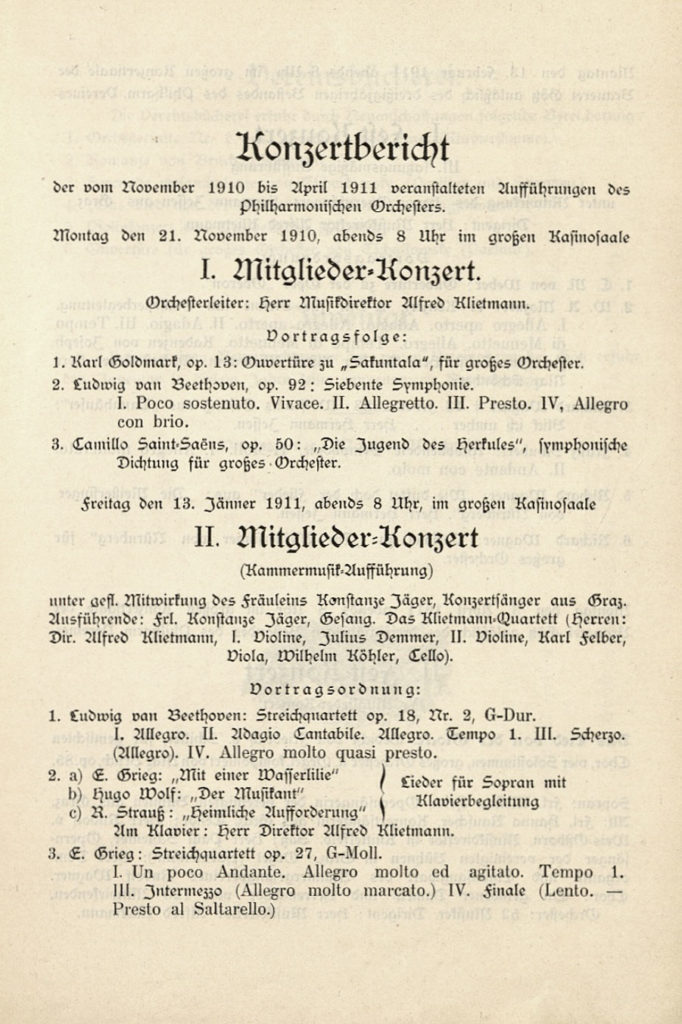
Violinist
JAN ŠLAIS
Jan Šlais (1893–1975) was born in Prague, where he attended secondary school. In 1907 he entered the Prague Conservatory to study violin with Štěpán Suchý. After completing his studies, Šlais was appointed second concertmaster at the Free Theater (Svobodny teatr) in Moscow and a year later at the private Zimin Opera. From 1917 he was deputy concertmaster of the Symphony Orchestra of the Moscow Union of Musicians. In early 1919 he returned to his homeland and became a member of the orchestra of the National Theater in Prague, with which he went on a promotional tour to Paris, London, Geneva, Bern, and Zurich. In the fall of the same year he took over the position at the newly founded Slovenian Music Society school in Maribor. In 1920 he returned to Prague to continue his violin studies at the famous Ševčík’s Violin Master School, where he remained until June 1921. During this time he gave concerts in Prague and in the region. On 15 September 1921, Šlais accepted a position as violin teacher at the Ljubljana Music Conservatory, and at the end of the year, in Prague he married the pianist Růžená Deylová (1888–?), whom he had met in Maribor. In 1939 he became a teacher and head of the violin and cello department at the Academy of Music in Ljubljana. Seven years later he returned to his homeland to become a teacher at the Prague Conservatory, a position he held until 1952, and from then on at the Janáček Academy of Music in Brno. During his long stay of more than twenty years, he contributed significantly to the development of violin playing in Slovenia. He founded the Ljubljana String Quartet and trained the most important generation of Slovenian violinists, including Karlo Rupel, Leon Pfeifer, Albert (Ali) Dermelj, Vida Jeraj Hribar, Uroš Prevoršek, Kajetan Burger, Fran Stanič, Jelka Stanič, Vinko Šušteršič, and Francka Ornik Rojc. For this reason, today he is considered the founder of the “ Ljubljana Violin School.” At the Conservatory and later at the Academy of Music he taught violin based on Ševčík’s violin system. He also initiated a “master class” for violin and chamber music and created curricula for violin lessons. He was also very active as an artist. From 1920 until the 1940s he gave regular concerts in Slovenia, usually accompanied by Růža Deylová, Janko Ravnik, and Anton Trost (as the “Ljubljana Duo”) on the piano. Discover more

